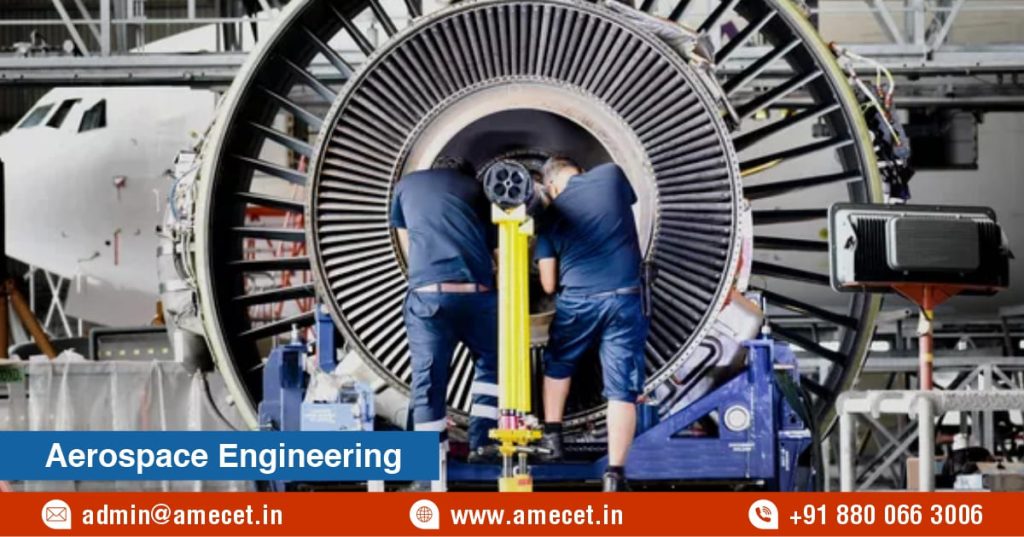To become an aerospace engineer, start by earning a bachelor’s degree in aerospace engineering or a related field. Coursework will cover subjects like propulsion, aerodynamics, and spacecraft design. Gaining practical experience through internships or co-op programs is crucial for applying theoretical knowledge. After completing your degree, consider obtaining professional certification or a master’s degree for advanced roles. Building a strong foundation through hands-on projects and staying current with industry trends will enhance your career prospects in aerospace engineering.
Educational Pathways
Becoming an aerospace engineer typically starts with earning a bachelor’s degree in aerospace engineering, mechanical engineering, or a related field. This foundational education includes courses in aerodynamics, propulsion, and materials science. Advanced degrees, such as a master’s or Ph.D., can offer specialized knowledge and research opportunities. Choosing accredited programs and gaining practical experience through internships will further enhance your qualifications and career prospects in aerospace engineering.
Points:
- Bachelor’s Degree: Essential in aerospace engineering or related fields.
- Core Courses: Includes aerodynamics, propulsion, and structures.
- Accreditation: Ensure the program is accredited by relevant bodies.
- Advanced Degrees: Pursue a master’s or Ph.D. for specialization.
- Research Opportunities: Engage in research projects during your studies.
- Internships: Gain hands-on experience through industry internships.
- Certification: Consider additional certifications for advanced roles.
- Continuing Education: Stay updated with new technologies and advancements.
Key Skills and Competencies
Aerospace engineers require a blend of technical and soft skills. Technical skills include proficiency in aerodynamics, propulsion, and structural analysis, while strong problem-solving abilities and analytical thinking are essential for designing and troubleshooting aerospace systems. Effective communication and teamwork are also crucial, as engineers often collaborate with multidisciplinary teams. Staying current with evolving technologies and maintaining a detail-oriented approach further enhances their effectiveness in the field.
Points:
- Technical Knowledge: Expertise in aerodynamics, propulsion, and structural analysis.
- Problem-Solving Skills: Ability to address complex engineering challenges.
- Analytical Thinking: Strong capacity for analyzing data and systems.
- Communication Skills: Effective verbal and written communication.
- Teamwork: Collaboration with multidisciplinary teams.
- Attention to Detail: Precision in design and analysis.
- Adaptability: Staying current with new technologies and methods.
- Project Management: Ability to manage and coordinate engineering projects.
Certification and Licensure
Certification and licensure enhance credibility and career opportunities for aerospace engineers. Obtaining the Professional Engineer (PE) license often involves passing exams and demonstrating relevant work experience. In some regions, additional certifications may be required or beneficial, such as those in specialized areas like avionics or systems engineering. Maintaining certifications requires continuing education and adherence to professional standards, ensuring engineers stay current with industry advancements.
Points:
- Professional Engineer (PE) License: Key certification for credibility and career advancement.
- Examinations: Typically includes passing the Fundamentals of Engineering (FE) and PE exams.
- Work Experience: Requires documented experience under a licensed engineer.
- Specialized Certifications: Available in areas like avionics or systems engineering.
- Continuing Education: Necessary to maintain certifications and stay updated.
- Regional Requirements: Licensing requirements vary by location.
- Professional Organizations: Membership can provide additional certification opportunities.
- Renewal: Certifications and licenses must be periodically renewed.
Advanced Degrees and Specializations
Pursuing advanced degrees, such as a master’s or Ph.D., can significantly enhance career prospects in aerospace engineering. Advanced degrees allow for specialization in fields like spacecraft design, propulsion systems, or aerodynamics. These programs offer deeper knowledge, research opportunities, and can lead to roles in academia or high-level industry positions. Specializations help engineers focus on their areas of interest and advance in their chosen careers.
Points:
- Master’s Degree: Provides advanced knowledge and research opportunities.
- Ph.D.: Opens doors to academic or high-level research roles.
- Specializations: Focus on areas like spacecraft design or propulsion systems.
- Research Opportunities: Engage in specialized research projects.
- Career Advancement: Enhances opportunities for leadership and specialized roles.
- Industry Expertise: Deepens understanding of specific aerospace fields.
- Academic Roles: Allows for teaching and academic contributions.
- Professional Growth: Contributes to continuous learning and development in aerospace engineering.
In conclusion, becoming an aerospace engineer involves a dedicated path of education, practical experience, and continuous professional development. Starting with a relevant degree and gaining hands-on experience through internships are essential steps. Advanced degrees and specializations further enhance expertise and career opportunities. Certification and licensure add credibility and are often necessary for advanced roles. By cultivating key skills, staying current with industry trends, and pursuing ongoing education, aerospace engineers can drive innovation and excel in a dynamic and evolving field. This commitment ensures they remain at the forefront of aerospace technology and applications.

